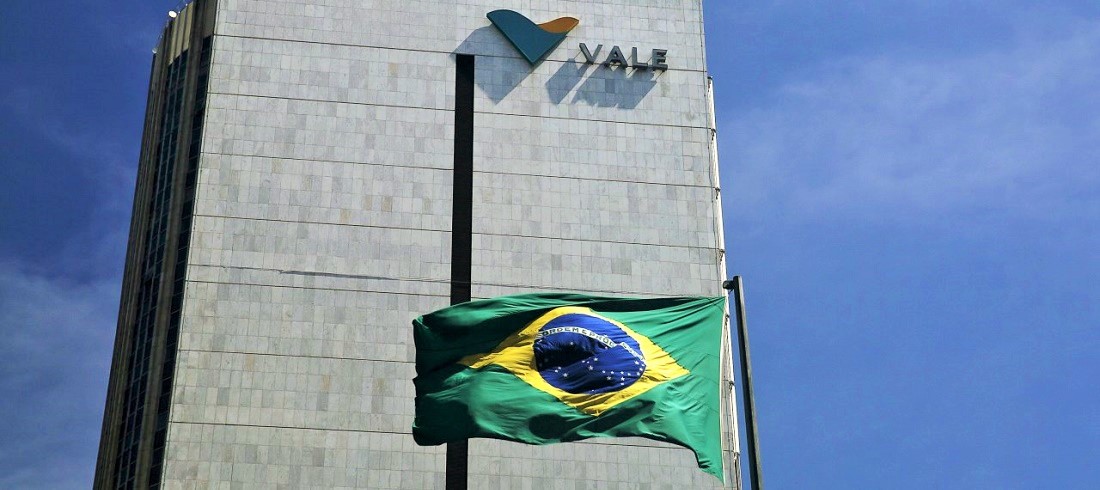
Vale begins production of briquettes to reduce steelmaking emissions
Dec, 14, 2023 Posted by Gabriel MalheirosWeek 202345
Vale started on Tuesday (12) the production of briquettes, a product developed by the company to contribute to the global decarbonization process in the steel industry. The first of the company’s two plants, which is also the first briquette factory in the world, was commissioned at the Port of Tubarão, in Vitória, Espírito Santo. Next year, when both plants are operational, Vale will be able to produce 2.5 million tonnes, with demand from 30 customers already guaranteed.
The investment in the two units in Tubarão—which were originally pelletizing plants—amounted to R$1.2 billion, and the mining company’s goal is to produce 6 million tonnes of briquettes by 2025. Vale’s executive vice president for iron solutions, Marcello Spinelli, said briquettes will account for half of the company’s expected production of 100 million tonnes of agglomerates (pellets and briquettes) per year from 2030.
The material is produced by low-temperature agglomeration of high-grade iron ore known as ore fines. It emits fewer particulates and gases such as sulfur dioxide (SOX) and nitrogen oxide (NOX) than traditional agglomeration processes and eliminates the need for water in the production process.
In steel mills producing steel from blast furnaces, the use of briquettes can replace sintering, the stage in which iron ore is agglomerated, potentially reducing greenhouse gas (GHG) emissions by up to 10%. In direct reduction steelmaking, natural gas is used as an alternative to coke. In this process, briquettes and pellets are used to produce HBI (hot briquetted iron)—an intermediate product between iron ore and steel—which in turn is fed into an electric arc furnace to produce steel with lower emissions than a typical blast furnace.
In the future, by using green hydrogen instead of gas, HBI could enable the production of green steel with zero greenhouse gas emissions. The briquette is part of Vale’s strategy to reduce Scope 3 emissions in the value chain by 15% by 2035. The company has already signed agreements to provide decarbonization solutions with more than 50 customers responsible for 35% of these emissions. The mining company also aims to reduce its direct and indirect net carbon emissions (Scopes 1 and 2) by 33% by 2030, as a first step towards zero net emissions by 2050.
Mr. Spinelli explained that the price of briquettes is similar to that of pellets, although the investment intensity and production costs are half those of pellets.
In addition to the two units in Tubarão—where the company also has six other pelletizing plants—Vale plans to build another eight briquette plants in partnership with customers in regions such as the Middle East and the Gulf of Mexico, as well as in Brazil. The company will look for areas with available natural gas and market opportunities to organize mega hubs—industrial complexes built near customers to streamline energy resources and logistics.
In Brazil, one of the possible sites is the Port of Açu, north of Rio de Janeiro, where competitive gas is available. “The Port of Açu is one of the sites that has the possibility of having competitive gas, and there is interest in developing a steel mill to produce HBI,” Mr. Spinelli said.
After the inauguration ceremony—which was attended by the governor of Espírito Santo, Renato Casagrande—Vale CEO Eduardo Bartolomeo said the company was still studying the possibility of setting up a green hydrogen plant with Sweden’s H2 Green Steel. There is a memorandum of understanding signed between the two companies that could make it possible to use green hydrogen in Brazil for the production of HBI in the future: “It’s about finding the right balance between the competitiveness of hydrogen and justifying the investment in an HBI plant,” Mr. Bartolomeo said.
The executive also said that the mining company remains “fully committed” to closing the deal on compensation for the collapse of the Samarco dam in Mariana, in the state of Minas Gerais, which caused one of the country’s biggest environmental tragedies in 2015. Samarco is a joint venture between Vale and Melbourne-based BHP Billiton.
“We will conclude the agreement as soon as possible,” he said. According to the executive, the current discussions are about the legal framework of the agreement and the amounts are not yet on the table. “The legal framework on Mariana is complex, it’s the first and most important part of the agreement,” said Mr. Bartolomeo, who denied that there were any problems in the negotiation process.
Source: Valor Econômico
Click here to read the original text in Portuguese: https://valor.globo.com/empresas/noticia/2023/12/12/vale-inaugura-primeira-fabrica-de-briquetes-do-mundo.ghtml?li_source=LI&li_medium=news-page-widget
-
Ports and Terminals
Oct, 16, 2020
0
Port of Imbituba initiates bidding process for Liquid Bulk Terminal
-
DW 20201 EN
Feb, 15, 2021
0
DatamarWeek 16 february 2021
-
Grains
Apr, 13, 2023
0
Kremlin warns outlook for Black Sea grain deal is ‘not so great’
-
Ports and Terminals
Sep, 06, 2023
0
Bovine exports rises through Rio Grande Port

